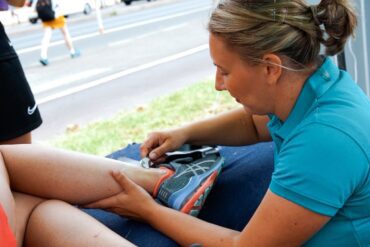- Resist the urge to ridicule, guilt trip or shame in small ways that seem “harmless.”
Many of the ways we “guide” children are actually designed to provoke shame. That includes any negative judgment about:
Who the child is: “You’d lose your head if it wasn’t glued on!”
What the child wants: “You just want more, more more! You have a whole room full of toys, isn’t that enough for you?”
What the child feels: “You do not hate your brother; don’t say such terrible things!”
What the child needs: “What? Are you a baby?! Don’t you see I have enough to do taking care of your sister?”
Instead, just empathize and set a limit without judging or criticizing.
“You lost your jacket? Oh no! Let’s think about where you could have left it. And let’s figure out a way for you to check whether you have all your things before you leave someplace.”
“That toy looks pretty cool. You really wish you could have it. Sweetie, we’re not buying toys today. We can write it on your birthday list and maybe you can have it then, if it’s still what you want most.”
“I hear how furious you are at your brother. Tell me what what happened, Honey.”
“Everybody wants to be babied sometimes. You will always be my baby, no matter how big you get. I can’t carry you right now, but come here and let me give you a big cuddle.”
Kids look to us for guidance to know what’s socially acceptable, as long as they respect us.
- Model the behavior you want.
Kids look to us for guidance to know what’s socially acceptable, as long as they respect us. So if they have an impulse that’s clearly not what gets done at our house – peeing on the floor, for instance – they’ll learn to restrain their impulse to pee on the floor. That’s developing their internal brake. Conversely, if they see you indulge in being critical and yelling, they won’t rein themselves in from criticizing and yelling.
- Welcome discussion on all issues.
Secrets cause shame, because they give kids the message that something is unspeakable. It’s terrific to tell your daughter that you don’t even notice her birthmark and she’s beautiful, but be sure it’s a topic of occasional discussion in your house so she feels comfortable bringing it up. If her experience is that others notice her birthmark and she feels different, but can’t share that with you, then she’s likely to develop shame about her birthmark. Be age-appropriate in your explanations, but nothing should be off limits for discussion.
- Guide with empathic limits.
Every time you set an empathic limit, your child practices using his internal clutch to manage his impulses. And the more empathic you are as you set the limit, the more your child will accept the limit, and WANT to shift gears to channel his impulses into more acceptable behavior. Conversely, if she feels judged or criticized, she’ll resist your limits and feel ashamed of her own impulses.










